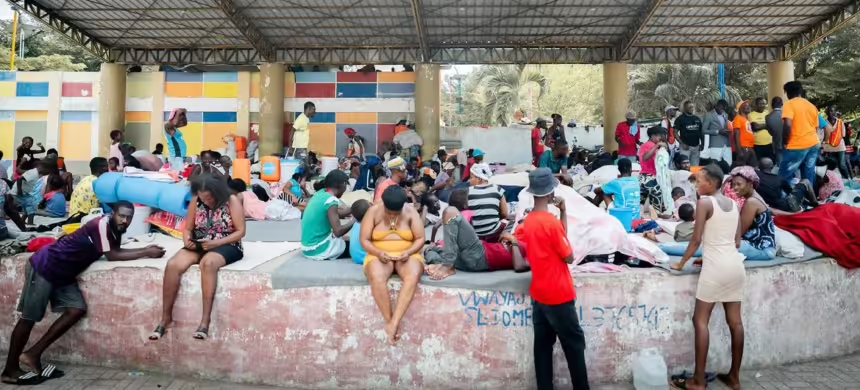As instability continues to wreak havoc in Haiti, the United Nations is drawing attention to acts of sexual violence against women and girls in temporary shelters.
The recent UN Women report reveals the dire conditions and extreme insecurity faced by some 300,000 displaced women and girls, against a backdrop of ongoing political instability, escalating gang violence and the looming threat of hurricane season.
Women and girls account for more than half of the 580,000 displaced people in Haiti, according to the UN report.
The gender rapid assessment conducted by UN Women in April in six of Port-au-Prince’s most populous and diverse displacement sites highlights the serious vulnerabilities of these makeshift camps. The absence of essential infrastructure, such as lighting and secure locks in key areas like bedrooms and toilets, exposes residents to daily threats from armed gangs.
The report highlights the urgent need to improve protection, as residents are constantly exposed to the danger of stray bullets and other security risks.
In addition, the report reveals that sexual and gender-based violence, particularly rape, is used as a deliberate tactic to control women’s access to humanitarian aid in these camps. “Our report tells us that the level of insecurity and brutality, including sexual violence, that women face at the hands of gangs in Haiti is unprecedented. This must stop now”, said Sima Bahous, Executive Director of UN Women.
In light of these alarming findings, Ms Bahous urged the new Haitian government to take immediate action to prevent and respond to violence against women and girls. She stressed the need to increase women’s participation in the management of IDP camps to ensure that their security concerns are taken into account. Ms Bahous also stressed that “humanitarian aid must be distributed safely, taking into account the differentiated needs of women and girls”.
The report also painted a bleak picture of the economic situation in the camps. Nearly 90% of the women interviewed said they had no source of income.
In a desperate effort to support themselves, over 10% of those surveyed admitted to having considered or resorted to sex work or prostitution, while 20% knew of at least one person who had done so.
The psychological toll was just as damning: 70% of women said they were mentally affected by the upsurge in violence, and only 10% had access to health services in the camps.
In response to this crisis, UN Women is actively supporting women’s organizations to reach displaced people in both host communities and camps. This includes projects funded by UN Women’s Peace and Humanitarian Fund, the UN Peacebuilding Fund and the German government. The agency has also trained police officers to improve the prevention of sexual and gender-based violence and provide the necessary services to survivors. In addition, UN Women continues to support women entrepreneurs affected by roadblocks and ongoing violence through a project funded by Norway.
To combat endemic gang violence, the UN Security Council authorized the deployment of a Multinational Security Support Mission (MSS) last October to assist the Haitian National Police. UN Women called on all stakeholders involved in this non-UN mission to ensure the immediate protection of women and girls, and to empower Haitian women’s organizations to play a leading role in the management of camps for the displaced. The agency stressed the urgent need to involve women in decision-making processes, noting that only two percent of the women surveyed currently hold leadership roles in camp management.
Unprecedented insecurity and sexual violence hit displaced women in Haiti

